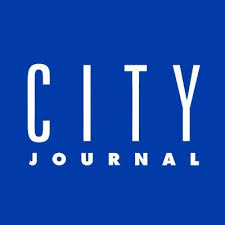About Those Self-Evident Truths. . . .

What are we without them?
Winter 2020
America’s unique gift to the world is the idea of a democratic republic, in which citizens live under laws that they themselves have made through their elected representatives. We are not ruled. Our 1787 Constitution, perfected by the Bill of Rights, the Reconstruction Amendments, and the Nineteenth Amendment giving women the vote, details the mechanism for such a republic, but it is inert machinery until animated by a culture of independence, a spirit of liberty, that brings it to life. George Washington, who presided over the Constitutional Convention, made this point repeatedly. No constitution, however wisely designed, he warned—prophetically, it now seems—can protect a people against tyranny or conquest if it weakens itself by unchecked “corruption of morals, profligacy of manners, and listlessness for the preservation of the natural and unalienable rights of mankind.”
Manners, morals, and beliefs: you couldn’t find a more succinct definition of “culture” than this. It is our inherited reservoir of assumptions about what is good and bad, right and wrong, proper and improper—our largely unexamined ideas and habits, absorbed from our families and communities, that we so take for granted that they seem to come to us by instinct or intuition. They spring from the accumulated wisdom and experience of the human race, refined in America by the Western tradition and by our own exceptional history. This inherited cluster of beliefs and feelings, this moral imagination, forms the glue of society, the oil that smooths the friction of the social machinery, the rules of the road for self-government at the individual level, essential to a self-governing nation.
Washington, a quirky and unorthodox believer in a Providence that specially protected him, thought religion indispensable to the culture of liberty, if only for the utilitarian reason that people will do such improper things as tell lies in court if they don’t fear divine retribution. As the Revolutionary War loomed, the English philosopher-statesman Edmund Burke, Washington’s contemporary, stressed the deep historical link between the colonists’ religion and the fact that the “fierce spirit of Liberty is stronger in the English Colonies probably than in any other people of the earth.” Americans are mostly Protestants, he said in Parliament, and, especially in the northern colonies, Protestants from sects that broke away from the established Church of England. “All protestantism,” he noted, warning his fellow legislators not to push America into revolt, “is a sort of dissent. But the religion most prevalent in our Northern Colonies is a refinement on the principle of resistance: it is the dissidence of dissent and the protestantism of the protestant religion.” Its various sects agree in “nothing but in the communion of the spirit of liberty,” a spirit “adverse to all implicit submission of mind and opinion.”
Today, when only half those polled belong to a church or synagogue, nearly half don’t believe in God, a mere 35 percent consider themselves Protestants, and three-quarters think that religion is losing its influence in American life, where do the rest of us get our ideas of right and wrong, good and bad? And what has become of the spirit of liberty? Continue reading
